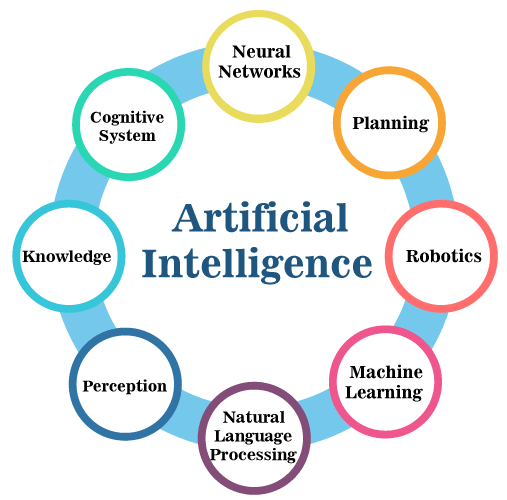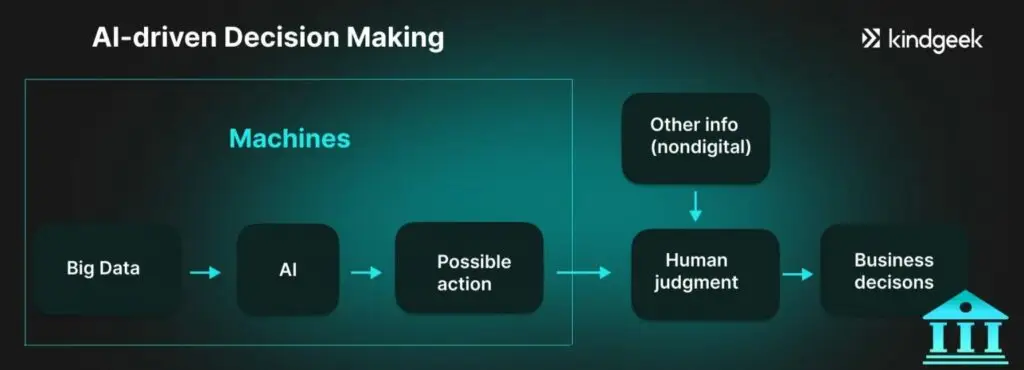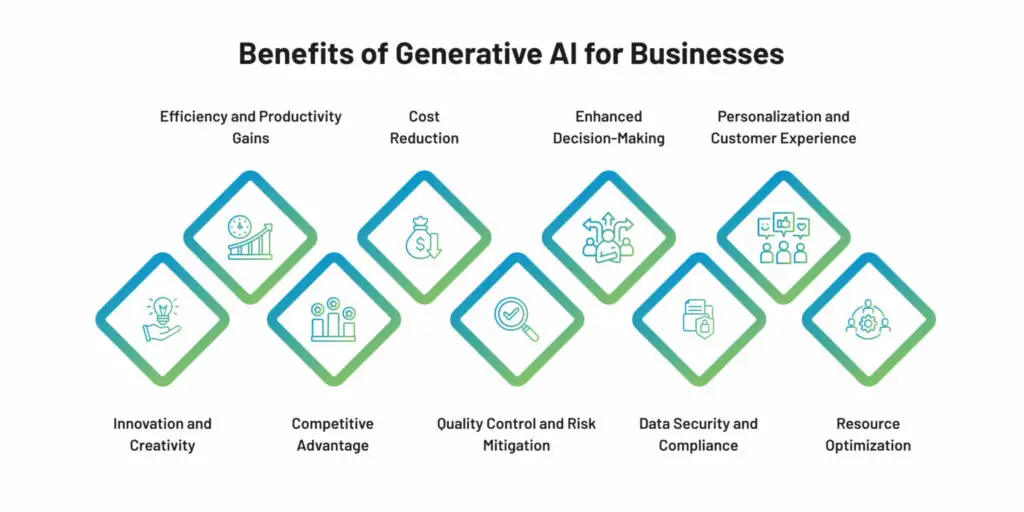
Earning Money Using AI
- Date July 15, 2024
Earning Money Using AI Secret Tips!! A Complete Guide for Everyone
Artificial intelligence (AI) is transforming sectors around globally. Earning money using AI generates major financial impacts while offering appealing possibilities for investors, business owners, and those interested in technology. From building novel applications to investing in AI firms, the potential for profit with AI is enormous and expanding. This guide offers secret ideas on how to capitalize on the AI boom and carve out a profitable niche.
In the last few years, tremendous breakthroughs in AI technology have prompted a worldwide gold rush. Companies are trying to incorporate AI into their daily operations to gain an edge over competitors, while investors are pouring money into AI startups in the hopes of capitalizing on the upcoming major achievement.
Understanding AI and Its Economic Impact
Exactly what is artificial intelligence?
Artificial intelligence, more commonly known as AI, refers to a variety of technologies that allow machines to simulate the intellect of humans. In 2024 and beyond Intelligence involves acquiring knowledge from data, identifying patterns, making decisions, and carrying out activities that normally require human intellect, such as visual perception, speech recognition, and language translation. AI can be classified into two types: narrow AI and general AI. Narrow AI is intended for limited activities, such as virtual assistants or recommendation systems, whereas wide AI seeks to accomplish any intellectual work that a human can.
The Financial Environment of artificial intelligence (AI)
The artificial intelligence (AI) sector is expanding rapidly, with major expenditure going into research, development, and deployment of AI technologies. According to current predictions, the worldwide AI market will approach the amount of $500 billion (about $1,500 per person in the US) by 2025, fueled by advances in machine learning, natural language processing, and robotics. AI is revolutionizing industries like healthcare, banking, retail, and producing goods, resulting in many positive financial prospects.
Best Strategies for Making Income using artificial intelligence (AI)
Developing AI Tools and Applications
- Identifying Market Needs : The most important stage in creating successful AI tools and apps is identifying market trends. Conduct market research to better understand the pain points and problems that organizations and consumers encounter. Look for areas that AI can help, such as improving productivity, boosting customer experiences, or automating repetitive work.
To find out customer requirements, begin by researching business developments and interviewing potential customers. Stay up to date on industry advances by attending conferences, reading relevant publications, and participating in online networks. Also, consider conducting surveys or interviews to receive firsthand input from those who are important to you. This will allow you to find unmet needs and validate your ideas before devoting both time and money to implementation.
- Design, Development, and Monetization: Whenever you have discovered a market need, the following stage is to design and build your AI solutions. This includes building a skilled team, selecting appropriate technologies, and iterating on your product depending on customer input. Subscription models, licensing fees, and selling your product as a subscription service (Software as Service or SaaS) are all viable monetization techniques. Ensure that your pricing plan is consistent with the value your AI product gives to users.
Investing in AI Companies and Startups
Dealing in AI firms and startups is another profitable option. While the AI market grows, numerous businesses emerge with creative approaches. Conduct extensive due diligence to find prospective companies with high growth potential. Consider the founders’ skills, the distinctiveness of their technology, and market traction. Diversifying your investments across various AI businesses can reduce risks while increasing rewards. Platforms like Cruchbase and Unita contain the list of a few AI based startups that can give you an idea of what to look for.
Offering AI-driven Services
- Consultancy: AI consulting services are in high demand as firms look to incorporate AI into their business processes. As an AI advisor, you can provide knowledge in AI strategy formulation, technology implementation, and optimization. Helping firms manage the hurdles of AI implementation may be quite gratifying.
To be effective as an AI consultant, create a solid portfolio of successful projects and gain an in-depth comprehension of AI technologies and applications. Networking with industry people and attending relevant events can help you establish a reputation and acquire customers. Consider earning certificates or advanced degrees in AI or similar subjects to expand your knowledge.
The Forbes Newsletter provides a list of top best Ai consulting firms so you can look for what you need to be.
- Custom Solution: Despite consulting, providing unique AI solutions suited to specific business requirements can be beneficial. This includes creating custom AI models and solutions to handle the unique difficulties that each client faces. Custom solutions are frequently priced higher than standard solutions due to their uniqueness and value.
Improving Your artificial intelligence (AI) Abilities
Required abilities for AI Research
To be successful in the AI sector, you must develop a solid skill set. Languages for programming such as Python, knowing machine learning techniques, data analytic competence, and neural network programming knowledge are all necessary for AI development. Knowledge of artificial intelligence systems like TensorFlow and Py Torch is also advantageous.
Data Science and Artificial Intelligence Teaching Materials
Thankfully there are plenty of sources available to understand AI and data science. Coursera, edX, and Udacity are examples of online platforms that provide complete courses and specialties in AI and machine learning. Furthermore, attending workshops, participating in hackathons, and connecting with AI organizations will help you improve your ability to implement and connect.
Preventing Major Dangers
Ethical Considerations
When artificial intelligence (AI) technology progresses, ethical issues become more significant. Ensuring that your AI solutions are appropriately built and deployed is critical. Address challenges such as data privacy, algorithmic bias, and transparency to foster confidence among stakeholders and users. Ethical AI practices not only reduce risks, but they also improve the reputation and longevity of your company.
Security of data is a major concern, as AI systems frequently rely on vast volumes of personal information. Implement strong data protection procedures to ensure that user information is gathered, kept, and processed securely. In addition, be open about how data is utilized and allow people control over their information.
Computational prejudice is another major concern. Biases may result from prejudice.
Conclusion
Since has been demonstrated through this guide, the opportunities to make income with AI are numerous and diverse. The potential is infinite, ranging from inventing advanced tools and applications to investing in new AI startups, providing AI-driven services, and constantly expanding your abilities. Mastering the artificial intelligence (AI) ecosystem, staying on top of patterns, as well as adhering to moral principles are critical to performance.
Frequently Asked Questions
Welcome to the FAQ section for our blog post on unlocking the secrets of Gen AI and the essential tools required for success. Here are some common questions and answers to help you grasp the essence of this transformative topic:
AI, or computational intelligence, is the simulation of human intelligence in robots. It has a financial effect by automating tasks, increasing efficiency, and opening new markets and job opportunities, all of which contribute to economic development and innovation.
You can start creating AI tools and applications, investing in AI firms, providing AI-driven services like advising or custom solutions, and expanding your AI abilities through ongoing education and practical experience.
The creation of artificial intelligence requires knowledge in programming languages (such as Python and R), machine learning methods, data analysis, neural network programming, and AI structures and instruments such as Tensor and Py Torch.
Yes, as with any investing, investing in AI businesses involves risks such as market volatility, technology unpredictability, and the possibility of ethical and legal problems. Before making any investment, you should undertake rigorous study and perform adequate research.
Ethical considerations include guaranteeing openness, justice, and personal responsibility in artificial intelligence (AI) systems, minimizing biases in data and algorithms, preserving user privacy, and considering the social impacts of AI technology.
Anyone can remain up on developments through following industry news, attend AI conferences and webinars, engaging in online AI communities, subscribing to AI research publications, and completing courses at recognized institutions.
Upcoming AI developments include advances in natural language processing, AI in healthcare, self-driving systems, Iot-driven cybersecurity, and tailored artificial intelligence (AI) solutions. These places provide major opportunities for income for these people.
AI costs for implementation vary depending on project scope, complexity, and technical requirements. Small-scale initiatives, such as pilot projects, can start with a few thousand dollars, whereas enterprise-wide AI adoption can necessitate significant expenditures in technology, training, and infrastructures.
You may also like

AI Skills to Break the Internet: Your Guide to Going Viral!

Unveiling AI Strategies of Millionaires





